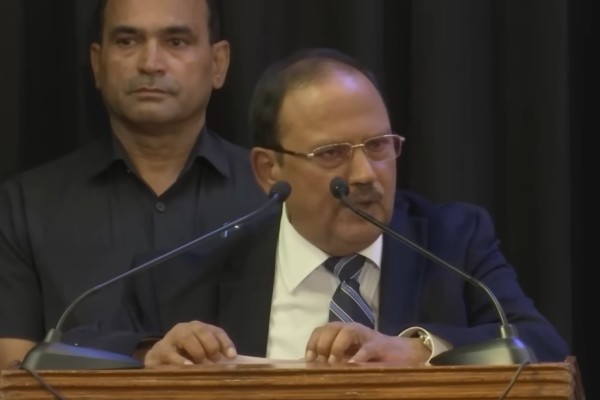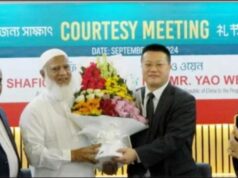
“In the task of nation-building, the most important are the people who build and nurture institutions, because these institutions provide governance, and governance creates nations and powerful states.”
With these words, National Security Advisor Ajit Doval set the tone for his address at the Sardar Patel Memorial Lecture in New Delhi on October 31, where he spoke at length about the meaning, challenges, and purpose of governance in shaping a nation’s destiny.
Doval said governance was not merely about laws or systems but about delivery and trust. “Governance is about delivering on the promises of the state, maintaining order, ensuring justice and fairness, and building faith among the people.” When governance fails, he cautioned, “no power on earth can stop the disintegration of a society.”
Drawing on South Asian examples, Doval noted that differences in governance have defined the fates of neighbouring countries. “If we look around us, in countries like Bangladesh and others in South Asia, we see how the quality of governance decides whether nations progress or stagnate.” These examples, he suggested, underline that political systems may vary, but the essence of governance — competence, fairness, and stability — remains universal.
The NSA said the hallmark of strong governance lies in its continuity and integrity. He described how even visionary leadership is dependent on sound institutions that outlast individuals. “Institutions that are built with honesty and purpose ensure that governance remains steady, even when leadership changes.”
Doval credited Sardar Vallabhbhai Patel for laying the foundations of India’s administrative and institutional framework, saying that Patel’s ability to integrate over 500 princely states into a single nation was “a monumental achievement of governance, not just negotiation.” Patel’s approach, he added, showed that decisive action and fairness can coexist in public life.
At the same time, Doval warned that governance without accountability leads to decline. “When institutions become self-serving or corrupt, when the system stops serving the people, decay sets in.” He said societies that ignore this reality often face instability, regardless of their resources or external strength.
The NSA also drew a distinction between government and governance, noting that the former changes with elections while the latter endures through principles and institutions. “Governance is not what a government does; it is what the system delivers continuously to its citizens, irrespective of who is in power.”
He underscored that trust between citizens and institutions was central to national cohesion. “If people lose faith in the fairness of governance, the foundations of the state begin to weaken.” That trust, he said, cannot be manufactured overnight; it must be built over time through honesty, justice, and efficiency.
Doval spoke of India’s long civilizational ethos that values dharma — a sense of duty and righteousness — as the moral compass of governance. “Our traditions have always stressed that rulers must be guided by the idea of dharma — not as religion, but as moral duty towards the people.”
He reminded the audience that governance is not the responsibility of the state alone, but a shared commitment of every citizen. “Governance is everybody’s business — from the highest in power to the common man. Each has a role in upholding the system.”
Ending on a note of reflection, Doval said the ultimate test of governance lies not in ideology or rhetoric, but in results. “It is not what you promise, but what you deliver that counts. That is what makes people believe in their nation and its future.”
In a career spanning three decades and counting, Ramananda (Ram to his friends) has been the foreign editor of The Telegraph, Outlook Magazine and the New Indian Express. He helped set up rediff.com’s editorial operations in San Jose and New York, helmed sify.com, and was the founder editor of India.com.
His work has featured in national and international publications like the Al Jazeera Centre for Studies, Global Times and Ashahi Shimbun. But his one constant over all these years, he says, has been the attempt to understand rising India’s place in the world.
He can rustle up a mean salad, his oil-less pepper chicken is to die for, and all it takes is some beer and rhythm and blues to rock his soul.
Talk to him about foreign and strategic affairs, media, South Asia, China, and of course India.




